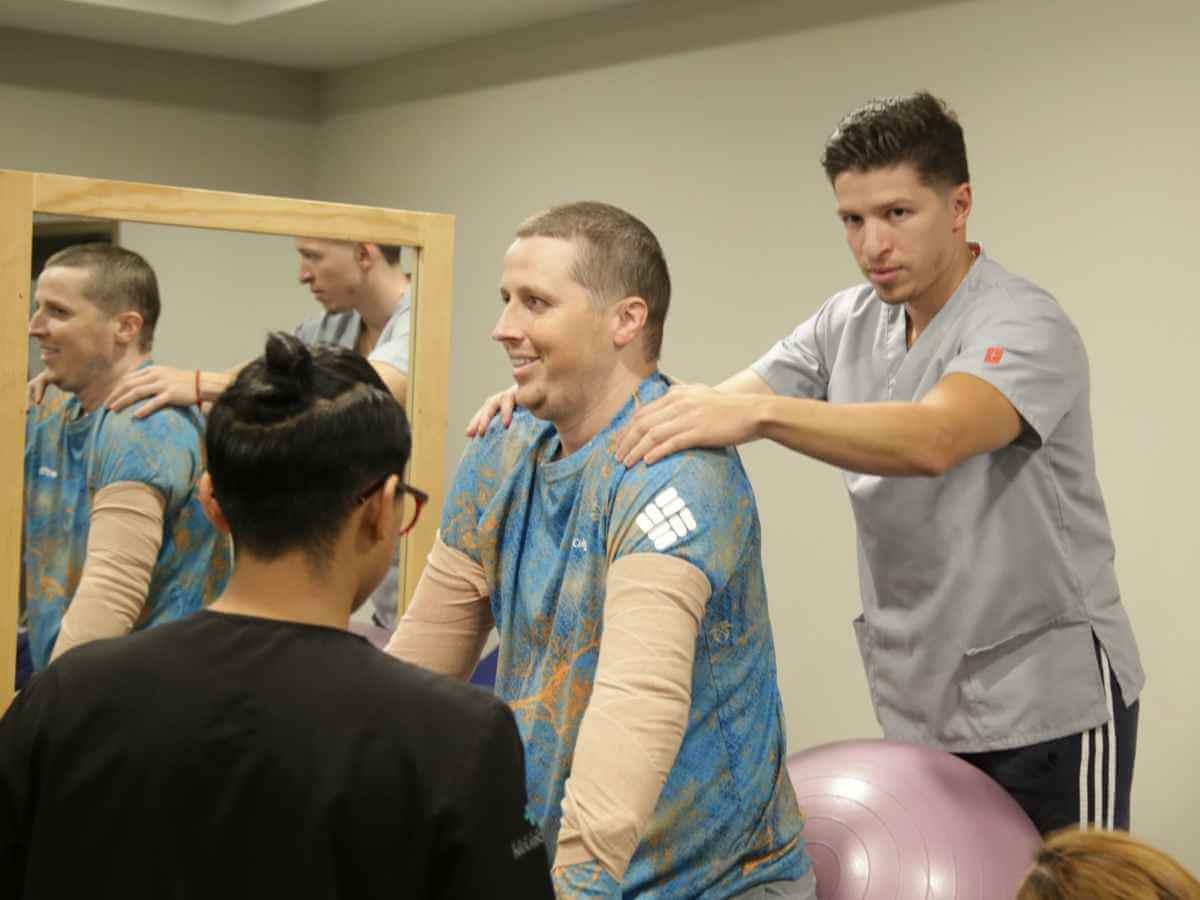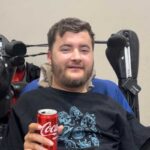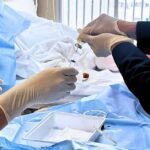Shallow water diving spinal cord injuries are the fifth most common form of SCI. Ricky is a Verita Neuro patient who suffered SCI in this way. He came to our Mexico clinic in July 2022 to receive epidural stimulation treatment. His consultation with us suggested that the best treatment for him was the implantation of two spinal cord stimulators and stem cell treatment. In this webinar with Dr. Rodrigo Vilches Aranguren and Dr Paulina Marin he talked about his treatment experience and answered questions.
Ricky, please tell us a little bit about yourself
Ok, so I'm 35 years old and I live in Katy, Texas, which is pretty close to Houston. I have a wife and 8 year old son and a 7 year old daughter. At the end of last February I was at a birthday party at a friend's house and dove into a pool after the neighbor. I hit the shallow end and broke C6, so they caged C6 and put a rod from C6 to C7. That was definitely life changing but it could have been worse for sure. Having two kids is a huge motivation and my wife's been a good support. I feel like I'm luckier than a lot of people I've met. So hopefully this can reach people's ears and I can motivate others. Because it's a tough injury for sure.
How long has it been since your injury? And how were your motor functions after your initial surgery?
It was last year, February 27. So I'm about 1 year and 6 months in. At the ICU, I really could only move my arms and then barely at all. Then I went into a medically induced coma for like 3 weeks when my lungs shut down. When I went to tier, I was there for a month, maybe 6 weeks, and I really didn't have much function at all. I couldn't move my arm once it got to here, it would just fall and I had nothing from the chest down - no finger function. My core was horrible - if I sat on a mat, I'd fall in any direction. Since then, up until I came to Verita at about the 1 year, 3 month mark, I was able to get back a lot of my arm function but not 100%. So my biceps were at about 20%, my forearm didn't work but the upper forearm did. My shoulders and back were probably the strongest of anything. But nothing worked 100%.
Did you do any rehab in the first year after your injury?
I’ve been going to therapy 4 to 5 days a week for two hours, where I did OT and PT. Luckily I found an awesome therapy place. I'll tell anybody, picking your physical therapy place is a huge asset, if you can find somewhere with a good team and a good space because the more you can motivate yourself to work, the better your recovery is. I see a lot of guys struggle with depression or being down and it helps to have good teams around for sure.
Do you feel the difference in your injury before and after rehab?
Yeah, I definitely can, I've noticed it's a slow road. Most people want instant gratification but you have to work really hard and still not expect to see big results. But when you look back every six months or so, you think ‘Man, look, what I can do now’. Like today at therapy was the first time I was able to transfer back and forth on the slide board so I'll start driving this weekend. So you know, it's been a year and a half - 6 months, 8 months ago, I would have never thought I would get to that point.
How did you find us?
My wife actually found you. There were a few things floating around Facebook and a couple of quadriplegics had kind of heard about this new stimulation thing. My grandma, after I got hurt, actually mentioned it to us and I kind of shrugged it off, because it wasn't in the United States yet. But once my wife found it back in January and we did some research, I was starting to see a little recovery from therapy, so I wanted to give myself the best shot. When she started digging into it, I decided to pull the trigger on it.
What were your expectations?
To be honest, they were kind of all over the place, because with this injury, you wish there was a miracle thing that would fix it. So initially, when I heard about it, I saw people walking with crutches, and my expectations started really high. I was hoping it would be a big fix and I kind of tapered it down so I didn't get let down. I've tried to come here with minimal expectations but I expected it to help and I wanted it to help a lot.
What did you think about Mexico before you came?
I had never been and actually I was going to go to the Thailand location, but Mexico's so much closer logistically. That was a big reason that I chose Mexico. I'm glad that I did now, because from the minute I got there it was pretty much positive. I went from being scared to actually getting there and meeting the Neurosurgeon and had the surgery and it just got better and better through the whole stay. After I was done, there's no doubt, it was an amazing experience for me.
Good! How was your surgery?
It wasn't wasn't bad. I've had a big broken leg surgery and a back surgery. I mean, it was pretty much like outpatient - two hours went by and I didn't have a lot of pain from the surgery. I was able to start training and doing stuff pretty quickly. The incisions are minimal and it was not as invasive as I thought, when you think of wires having to get threaded under your skin. I was happy to have minimal surgeries.
Can you tell us a little bit about the first week after surgery?
Can you tell us a little bit about the first week after surgery?
The first week is more pairing, so it's a lot of initial turning things on and seeing and to be honest, the first day or so when I was getting shocked I was like, ‘Oh my God, what did I sign up for, being electrocuted?’ It's a big difference for people that can't feel or don't have feeling because the guy I was there with ,Juan Carlos, he did not have feeling so he just felt pressure and things would move, but I can feel everything. So if you're thinking about doing it, and you have a feeling just be prepared, it's a shock at first and then your body gets used to it. So by the end of that first week, I had picked up on what they were trying to do with the electrodes and the mapping. After around day two it was pretty exciting because you got to see your leg move and your hand close for the first time. So there were a lot of really cool moments that first week - ones I won't forget for sure.
So what do you think was your biggest challenge after getting the stimulator?
At home, I don't spend as much time as I probably should on my body. So the adjustment of working five hours a day, and pretty much dedicating your whole two months to your body. I mean, you wake up early and workout and that's your whole day. You have evenings to yourself but that was a big challenge to get into that routine. But once I got it, it was awesome. I'm trying to replicate it at home now.
You were discharged not long ago, Ricky. How are you feeling? What can you do?
When you’re there, you kind of don't notice change as much when you're in the moment because you’re doing new things there the whole time. So when I got home and went to therapy and was doing things at home that I hadn't done in two months, it was really shocking how much stronger I am. The therapists at my place were just blown away with the jump I made in two months. Being able to transfer today was something we were thinking would take a year and the weight levels I'm doing for triceps. When I transferred, I was actually able to lift my entire body off the ground. So I've noticed huge changes strength wise.
One thing that is very important for us is that after you get discharged, you have to do a physical therapy program at home. Are you doing that?
Yeah, so we started setting it up before I left Mexico, because I wanted to keep replicating that, so I didn't lose anything. So I found the same type of weight set to get in the garage so I can do it in the mornings and then increased my therapy from 4 days to 5 days a week for 2 hours, so I could get about 4 hours of work there. Then I try to do an hour each day of programs. We're turning on certain programs that I don't use as much because you have 12 programs with each stimulator, but I probably only really use five or six of them a lot, so I need to turn the other ones on. So I try to get my five hours every day.
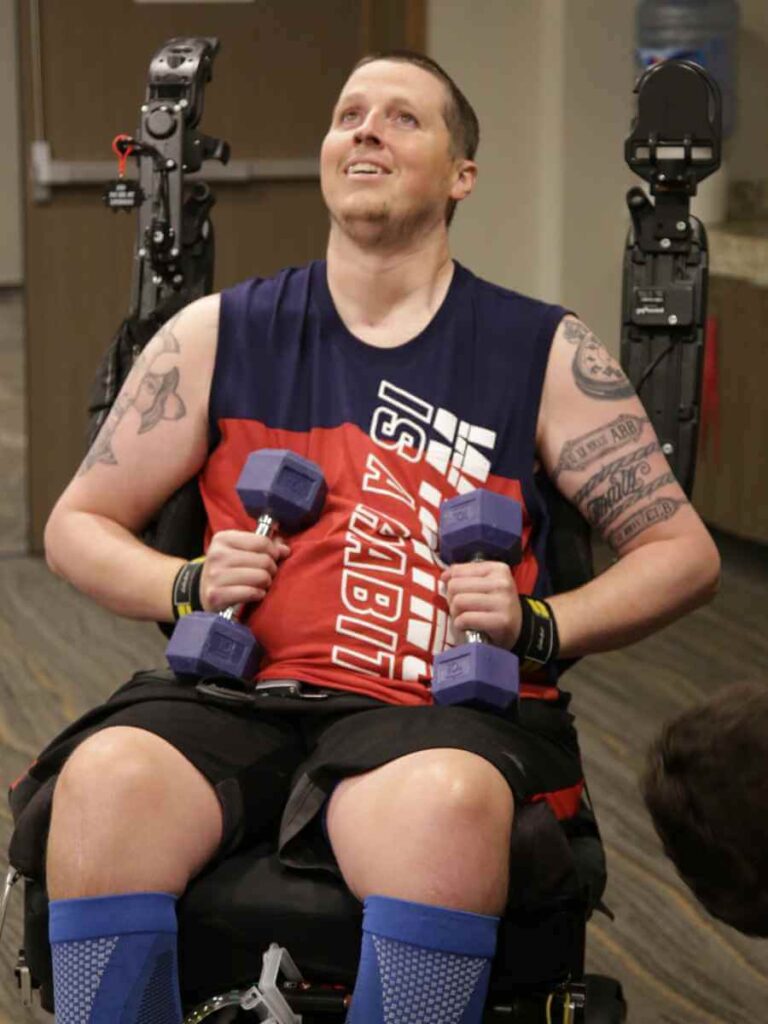
Can you tell the people a little bit about how you prepared before the surgery?
I've not been in the best shape you can be. Most people say it’s all about technique, but that's only part of it, you need to be healthy and you need to be at least the best shape you can get yourself before going. Because the better you are, the more you'll get out of it. You don't want to spend the first month trying to fix things that you could have fixed at home. If you do the MRI and you're going to get started, be on a good diet and push yourself as hard as you can before you get there, so your endurance is up and you can handle it better.
What's your experience been with the hospital and in general?
The hospital was incredible. It was actually a lot nicer than I thought it was going to be. The room was awesome. My only thing was the bed - My wife said she wanted it to have a more comfy bed so we ended up buying a little air mattress thing that made it way better. But the facility was awesome. Excellent the way they have it set up - just going from your room down to workout makes it very easy.
Probably the first thing I tell people is that the team ended up being family to me. By time I left, the mappers, the PT, to the nurses, to Paulina, it's really like you have a team of people looking out for you. If you're not feeling well or if you need to get motivated to push harder or if you want something accomplished, they will work on it. They're all assets for you and they really become your best friends in two months. That was my biggest thing. Also, the outcome - my upper body, I didn't think I would get it back and being able to hold weights and do workouts and then stand and work on my core for 20/30 minutes at a time, I didn't think was possible. The people and then the actual procedure were way above my expectations.
Probably the first thing I tell people is that the team ended up being family to me. By time I left, the mappers, the PT, to the nurses, to Paulina, it's really like you have a team of people looking out for you. If you're not feeling well or if you need to get motivated to push harder or if you want something accomplished, they will work on it. They're all assets for you and they really become your best friends in two months. That was my biggest thing. Also, the outcome - my upper body, I didn't think I would get it back and being able to hold weights and do workouts and then stand and work on my core for 20/30 minutes at a time, I didn't think was possible. The people and then the actual procedure were way above my expectations.
For someone with a spinal cord injury similar to your condition, do you have a message for them?
If you can do it, I would say do it. Because what I've learned is, the more you can put into your body, in those years and dedicate to yourself, the better your life will be. Most of us are young and you're gonna be 30 years living with this, so if you need to bust it for a few years or five years, do everything that you can. This was a big one that I think is going to catch on because of how well it works. The quadriplegics here and the people you put me in touch with that I talked to were kind of family, looking out for each other. We're all learning and trying to figure stuff out together. So feel free to always ask for my number or reach out to Verita, they'll give you my contact and I will answer anything you want to know or encourage you whenever you need it. We need to stick together as much as possible.
Is it true you can move your legs and stand?
I had no movement from the waist down and minimal core so before I could only stand with the parallel bars for like a minute at a time. My blood pressure would drop but now with the programs on, we've started to get to where my knees and hips lock. The team could let go and I started to work to be able to stand on my own. Now I can stand 30 minutes/ 20 minutes at a time. With the programs I can kick and move my legs.
Okay, question about bowel and bladder. What improvements have you seen so far Ricky?
I have not. I’ve got a UTI so I've been dealing with that with antibiotics, so I haven't started trying to do it myself yet. But I'm at the three month mark with the stem cells so that's my next thing I'm going to start working on. I want to get driving and then I want to start trying without a catheter.
That’s great Ricky, thank you for joining this webinar!
The above is not a verbatim transcript of Ricky’s interview and the exact wording and order of words have been edited to be read more easily. You can watch the full interview on our YouTube Channel.
